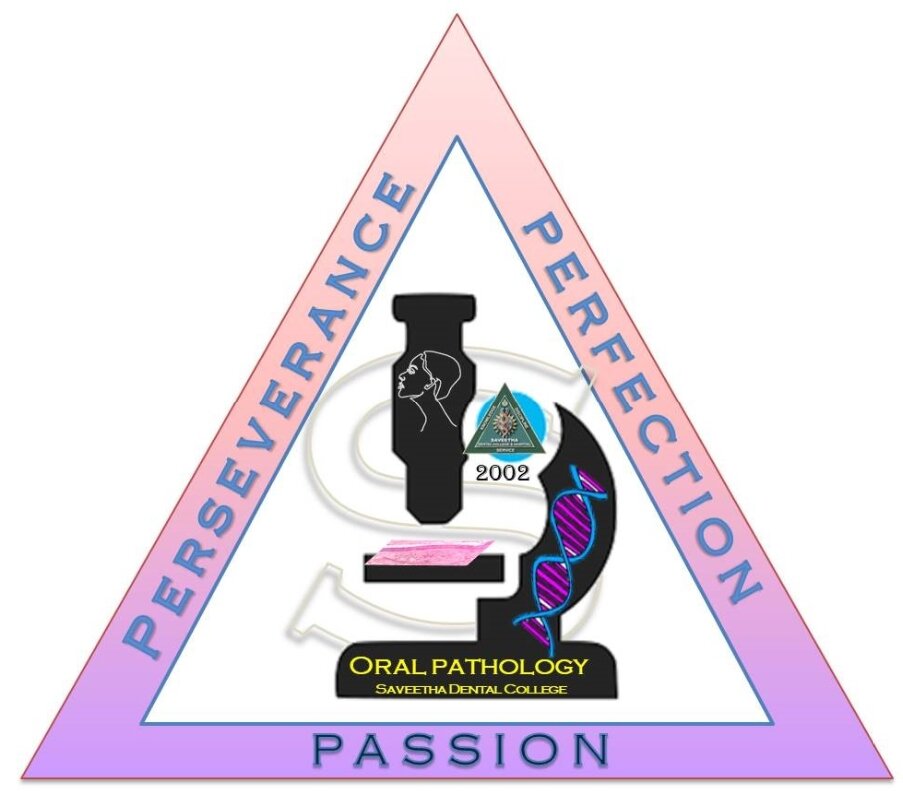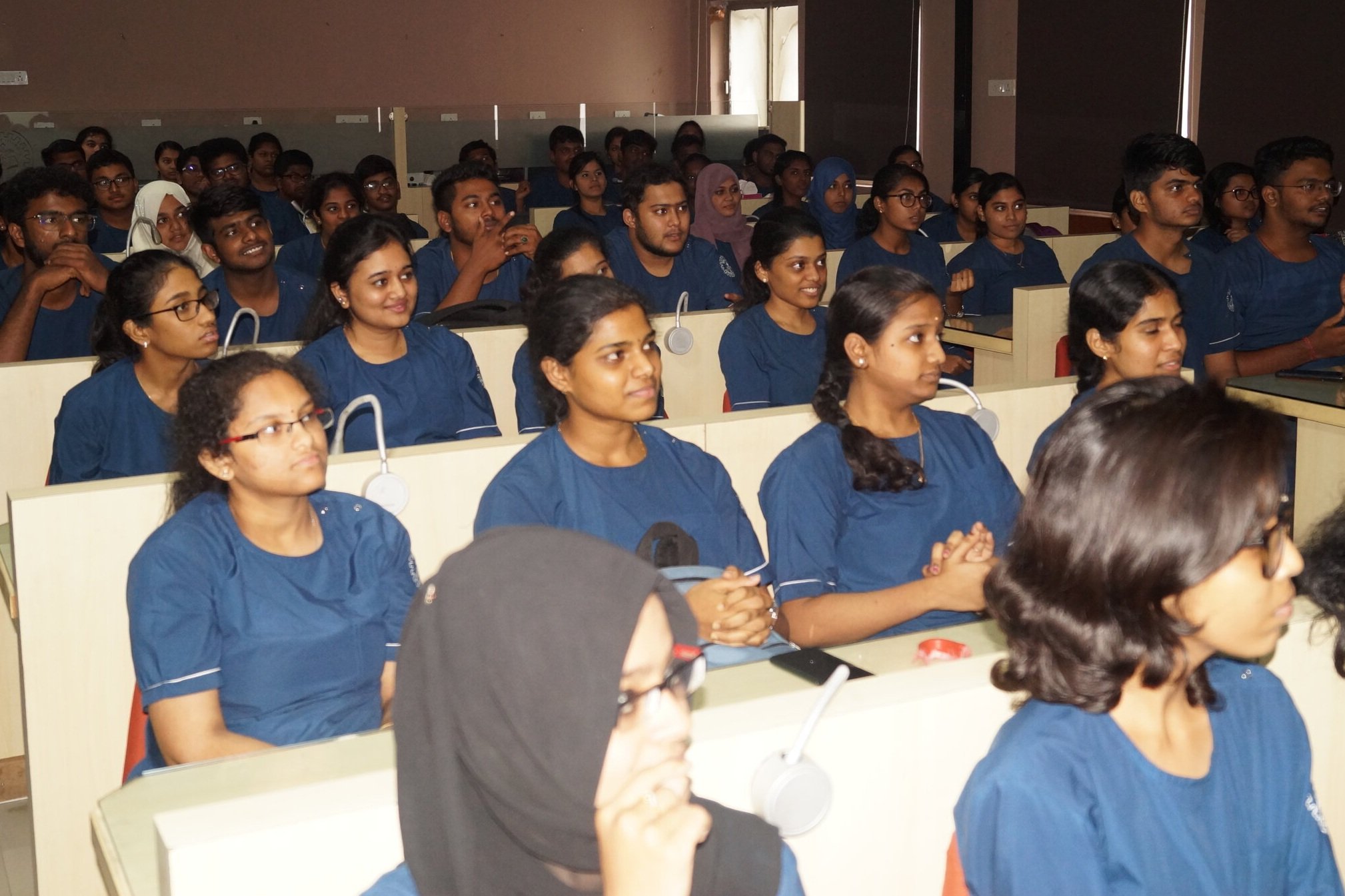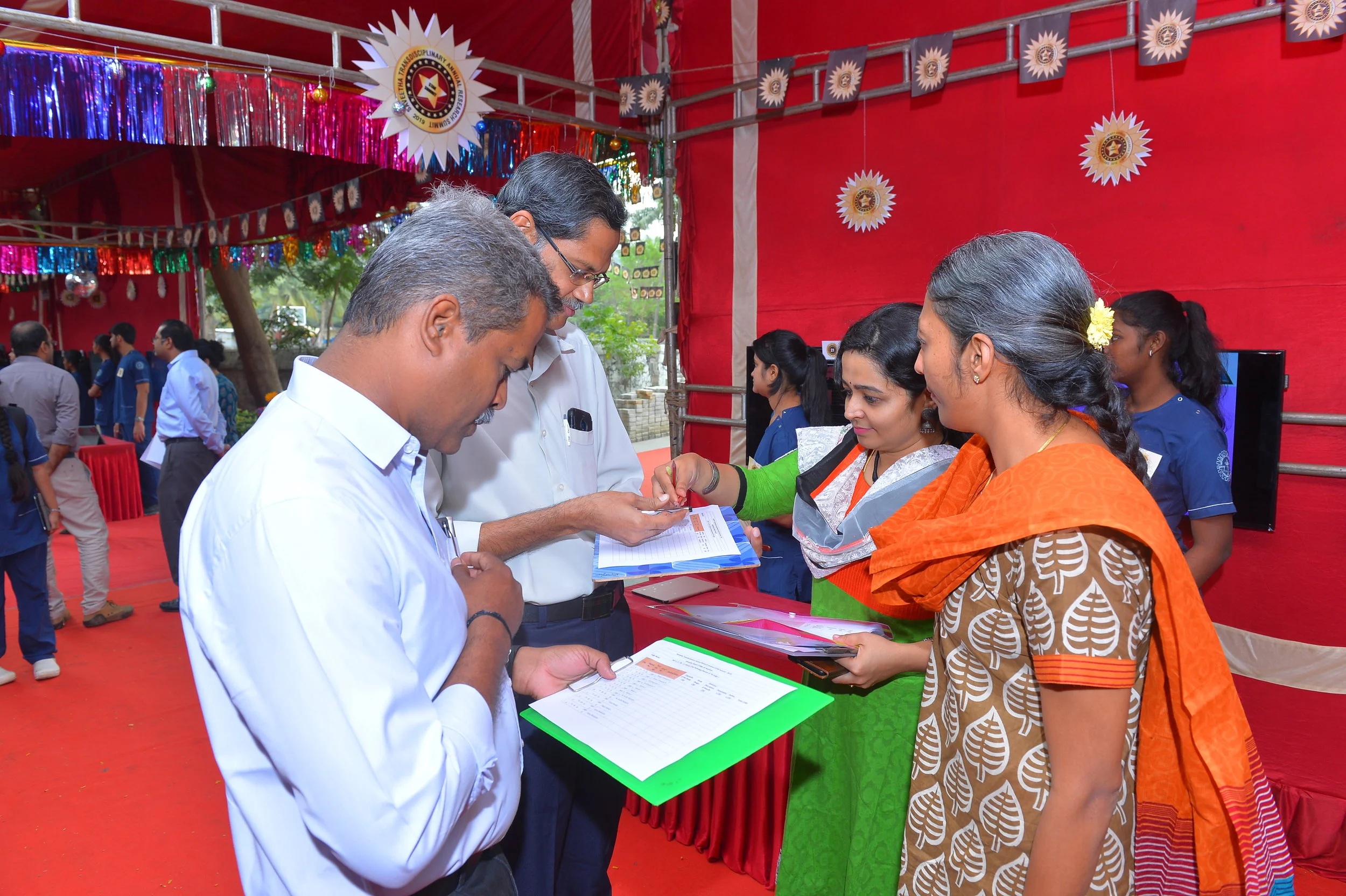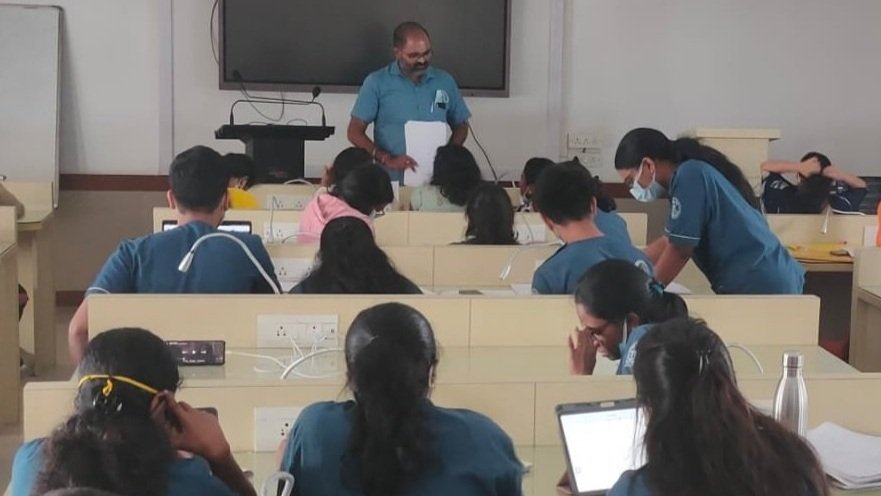“Teach them wisely, teach them for life.”
— Nanette L. Avery
Pinnacle of our curriculum
Student Enrolment from across the country through Centralized admission process with NEET eligibility.
Students admitted from various regions are handled by a healthy mix of multi-lingual faculty members in the department.
Interactive modules within the course curriculum, mentor-mentee system and Small group learning enhance the learning process.
Enthusiastic faculty comprising of highly experienced senior professors and vibrant neo-modern staff members with passion for oral pathology.
Continuous feedback is obtained from faculty members, patients as well as students help in corrective action of any perceived issues.
Student performance is assessed throughout the module as well as at the end with an incremental pattern. Learning outcomes are regularly evaluated to maintain standard and to inculcate new protocols.
Student feedback are given credence and frequent satisfaction surveys are taken throughout their tenure.
Program learning outcomes
At the end of the MDS Course in Oral & Maxillofacial Pathology and Oral Microbiology, a competent Oral Pathologist will:
To be competent in providing a working diagnosis best suited to the case in line with the clinical scenario by utilizing all adjuncts and aids in diagnosis thus facilitating proper treatment planning for the benefit of the patient.
Be competent in performing and interpreting molecular biology along with histopathological correlation and their application in theranostics.
Recognize conditions that may be outside the area of their specialty or competence and refer them to the concerned specialist.
Be able to consult with other interdisciplinary streams for special case scenarios.
Has acquired skills in effectively communicating with the patient, family, and the community
Is abreast of contemporary developments and advances in the field of Oral & Maxillofacial Pathology and Clinical Microbiology.
Be able to undertake audits, use information technology, be abreast of research methodologies and carry out or guide research projects to either publish or present in various scientific gatherings.
Module based learning
The curriculum is divided into quartiles composed of modules.
At the end of every quartile, a thorough assessment comprising of practical and theory examination is conducted.
It is evaluated with External examiners to ensure that the module has been completed successfully.










